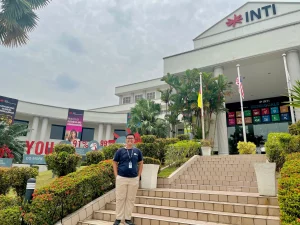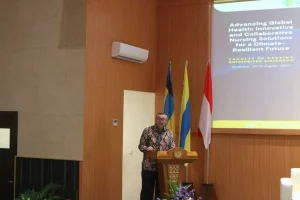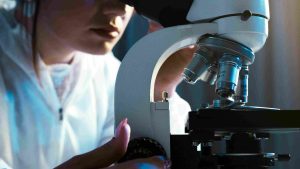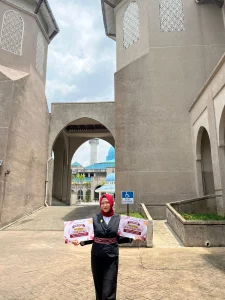UNAIR NEWS – Limited access to healthcare services in Indonesia is still a problem today. In remote areas, people find it difficult to reach adequate healthcare facilities.
As a result, maternal and child mortality rates in some remote islands in Indonesia are high. Maternal and child health is very important because the nation’s future is in the hands of Indonesian children today.
Through the Maternal and Child Healthcare Service Assistance Program, Universitas Airlangga (UNAIR) has initiated an empowerment program through the Ksatria Airlangga Floating Hospital (RSTKA). RSTKA will focus on community service to provide access to healthcare facilities in remote communities. According to the plan, RSTKA will visit 60 islands throughout Indonesia.
In this regard, the Minister of Health (Menkes) Budi Gunadi; UNAIR Rector Prof. Dr. Mohammad Nasih SE MT Ak; Dean of Medicine Prof Dr Budi Santoso dr Sp OG (K) several doctors attended a meeting via Zoom on Saturday, September 3, 2022. The Minister of Health gave his full support to the RSTKA program.
“This initiative (of RSTKA, ed) arose from the cases of maternal and child deaths which are getting more worrying. Furthermore, the Floating Hospital was part of the due to limited medical personnel and access to healthcare facilities that need to be addressed,” he said.

Big Challenge
Initially, RSTKA had covered Java and some islands outside Java. Based on data from the Central Statistics Agency (BPS), there are more than 270 million residents and 17 thousand islands in Indonesia.
The centralization of development in Java has led to some concentrated populations in Indonesia. Therefore, the community needs initiatives and innovations to solve these problems.
“Even though the government runs their program, it is not necessarily efficient because the budget is plenty, yet the output is small. And, the impact is not evenly distributed, “said the Minister of Health.
Budi added that the increasing maternal and child mortality rates must be prevented. Otherwise, it can traumatize the mothers. The existence of RSTKA is an excellent momentum to answer the problems of remote communities.
“With a community empowerment program like this, (the resolution of maternal and child deaths) becomes efficient. The input is small, but the output is huge,” said Budi.
Involving 2000 volunteers
For this program, RSTKA will involve 2,000 volunteers in its quest to more than 60 islands in Indonesia. Moreover, the Minister of Health began to gather support from large companies in the health sector to make the program a success.
The Minister of Health also hoped that many contributors would want to join. That way, the Floating Hospital can quickly answer the problems of remote communities throughout Indonesia.
Author: Sintya Alfafa
Editor: Feri Fenoria









